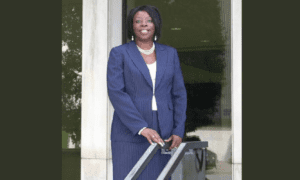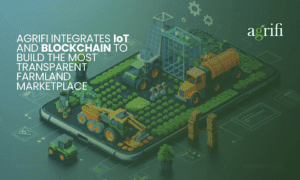While the Internet of Things (IoT) presents numerous opportunities for several players in different businesses and industries, it does not come without its fair share of challenges. Many companies are now organizing themselves primarily to focus on IoT as well as the connectivity of their future services and products. That being said, for the IoT industry to thrive and Executives to flourish in this field, there are challenges pertaining to business, society and technology that have to be overcome.
Recently, computer processor giant Intel stated that Intel Capital will set aside $72 million in funding for 12 startups to be added to its portfolio. Up until now, Intel has invested $115 million in IoT ventures. Executives are slowly beginning to learn that along with its challenges, IoT also offers potential room for solution providers who can address concerns like system implementation and scalability.
The World Economic Forum published its Global Risks Report for 2018 earlier this year. Each year, researchers who are a part of this Report work with decision-makers and experts across the world to analyze the most acute risks that the world faces. As the measure of differences advances, and as risk interconnections expand, this year’s report emphasizes the burgeoning strain we are placing on varied global systems we rely upon. The IoT and the dilemmas related to cyber attacks take a prominent reference in the report.
While 2018 posed distinctive challenges, here are some insights provided by experts about challenges IoT will face in 2019. Take a look:
Abhinav Dubey – CSO at Breadware
Abhinav Dubey is an entrepreneur, a strategist and a technologist at heart. With over 10 years of industry experience at the likes of Honeywell and AMD, he has ventured into the startup world with IoT at the center stage and is thoroughly enjoying it. Abhinav holds an MBA from University of Oxford, U.K, and MS from Christ University, Bangalore. His mantra – have fun and be fun.
Abhinav Says, “According to a Cisco study made public in 2017, a third of IoT projects fail and 60% of IoT projects do not go past the Proof of Concept Stage. Most companies, big or small, are experimenting with IoT but successfully realizing the intended benefits from the IoT projects has alluded almost all of them. IoT projects seem to be a tough nut to crack for full pathway implementation, one major reason being lack of IoT expertise. IoT spans across multiple realms – hardware, software, networking and security which makes it really tough to realistically estimate the complexity involved when you conceive the project. Finding the right talent or partner with deep IoT expertise will continue to be a challenge in short run.”
Raman Mehta – CIO at Visteon
Raman Mehta is the CIO at Visteon (Fortune 500). Raman has earned several leadership awards including CIO magazine’s 2017, 2013 CIO 100 Award, Computerworld’s 2012 Premier 100 IT Leaders Award, and a Crain’s Detroit Business CIO award.
Raman says, “Industrial IoT (IIoT) has the potential to revolutionize the manufacturing industry. The recent advancements in edge computing coupled with increasing cloud adoption makes it easy to implement IIoT enabled smart factory use cases. Security will continue to be a big challenge especially when you start to bring the vast IIoT data in the cloud for Machine Learning and AI purposes.”
Mouli Srinivasan – Founder and CEO at Mobodexter
Mouli Srini is a Serial Entrepreneur who co-founded Multi-National Corporations Mobodexter & Hurify. He also serves as a Board member| Advisor | Mentor for startups in Internet of Things (IoT), Drone & Blockchain technologies.
Mouli says, “IoT Solution Integrations are complicated as there no standard available due to the variety of interfaces, wireless connectivity protocols are diverse (3G/4G/5G, Wi-Fi, Z-Bee; Z-Wave; LoRA; Bluetooth and others), typical IoT solution designs require to involve prototyping various hardware and software interactions required between the devices; cloud and mobile applications. All this means that engineers and solution architects working on IoT projects need to understand the breadth and depth of the various technologies involved in the solution design and it requires a team of diverse skills to design and implement a comprehensive IoT solution. This kind of diversity and solutions are generally hard and complicated.”
About the author: Intellectus is an exclusive, invite-only community of highly acclaimed experts and analysts coming together to share their research, insights and views on trending topics in their respective industries on top-level publications.



































